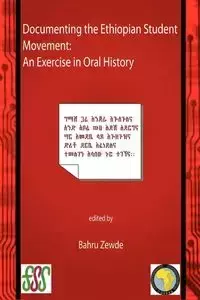Super cena
Documenting the Ethiopian Student Movement. An Exercise in Oral History
EAN: 9789994450336
Producent
Kod produktu
533FID03527KS
Rok wydania
2010
Elementy
164
Oprawa
Oprawa Skórzana
Miekka
Format
15.2x22.9cm
Redakcja
Zewde Bahru
Język
angielski
Zapytaj o produkt
Napisz swoją opinię





